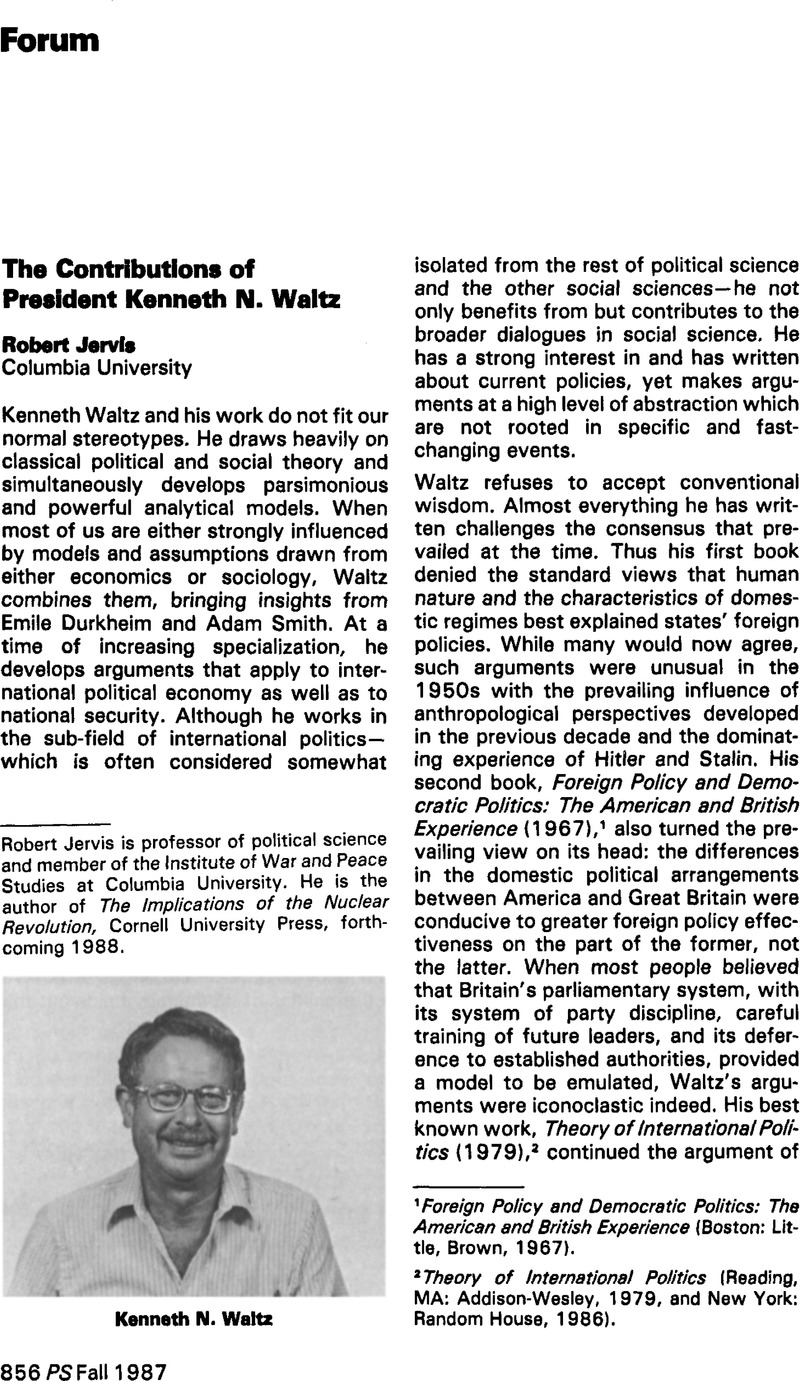Published online by Cambridge University Press: 21 November 2022

1 Foreign Policy and Democratic Politics: The American and British Experience (Boston: Little, Brown, 1967).
2 Theory of International Politics (Reading, MA: Addison-Wesley, 1979, and New York: Random House, 1986).
3 The Spread of Nuclear Weapons: More May Be Better (London: International Institute of Strategiestudies, 1981).
4 Man, the State and War: A Theoretical Analysis (New York: Columbia University Press, 1954).
5 Walt, Stephen, “Alliance Formation and the Balance of World Power,” International Security 9 (Spring 1985): 3–43.CrossRefGoogle Scholar
6 Goldstein, Avery, “A Theory of Politics in the People's Republic of China: Structural Constraints on Political Behavior and Outcomes, 1949–1978” (unpublished dissertation, University of California at Berkeley, Department of Political Science, 1985).Google Scholar
7 Posen, Barry, The Sources of Military Doctrine: France, Britain, and Germany Between the World Wars (Ithaca: Cornell University Press, 1984).Google Scholar